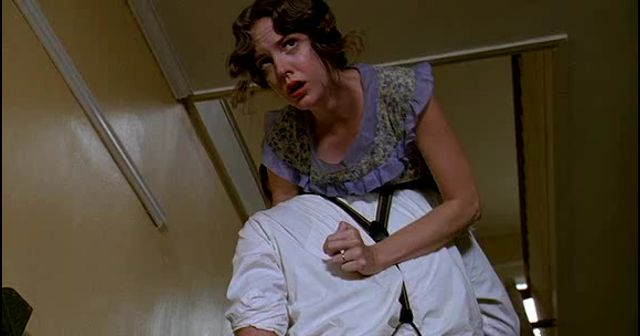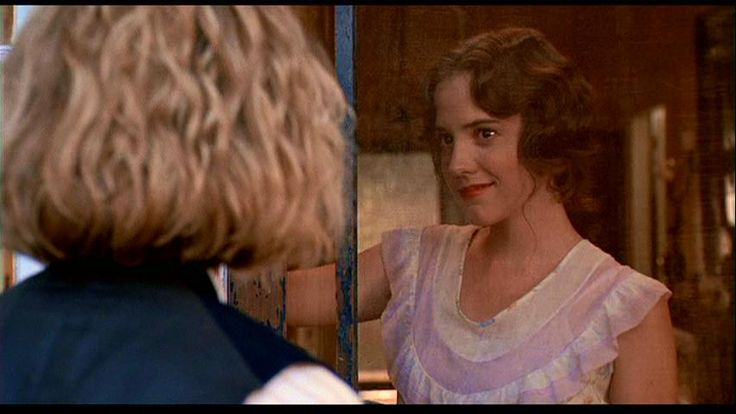
Some films entertain. Others inspire. And a few—like Fried Green Tomatoes—gently change you. It’s not loud. It doesn’t demand your attention. Instead, it sits beside you like a wise old friend and says, “Let me tell you a story.” And before you know it, you’re laughing, crying, reflecting, and feeling a little braver than before.
Since its release in 1991, Fried Green Tomatoes has become more than just a movie—it’s a life lesson wrapped in warm Southern charm. Through its characters and quiet moments, it reminds us what it really means to live fully, to love deeply, and to leave behind something meaningful.
Here’s what we’ve learned from this timeless film—and why its lessons still hit home decades later.
You’re Never Too Old to Change
Evelyn Couch begins the movie lost. She’s in her 40s, stuck in a marriage that’s more routine than romance, dismissed by nearly everyone, and weighed down by self-doubt. But then she meets Ninny Threadgoode.
And through stories of courage, defiance, and community, Evelyn begins to shift. Slowly at first—then all at once. By the end of the film, she’s no longer the timid woman we met in the opening scene. She’s self-assured, outspoken, and unafraid of standing up for herself.
Audiences of all ages have found hope in Evelyn’s arc. Because it says, with absolute certainty: it is never too late to become who you’re meant to be.
True Friendship Defies Time and Labels
The friendship between Idgie Threadgoode and Ruth Jamison is the beating heart of the film. Their bond goes beyond companionship—it’s soul-deep. They laugh, fight, grieve, and build a life together, raising Buddy Jr. and running the Whistle Stop Café.
Whether you see them as best friends, chosen family, or something even deeper and more romantic, one thing is clear: their love is real. And it’s the kind of love that isn’t defined by what people call it, but by how it’s lived.
For viewers who’ve ever had someone who understood them without explanation—this relationship is sacred. It’s a reminder that the deepest connections often come when we least expect them and that love, in its purest form, doesn’t need permission.

Listen to People’s Stories—They Might Save You
Ninny doesn’t look like a revolutionary. She’s elderly, often dismissed, and lives in a nursing home. But through her storytelling, she brings entire worlds back to life. She resurrects forgotten people, reignites courage, and teaches Evelyn—and us—that memory is a kind of magic.
Her stories aren’t just entertainment. They’re medicine. They carry wisdom, humor, grief, and truth.
In a world that moves too fast, Fried Green Tomatoes urges us to sit down, be still, and listen. Because the stories of the past might just hold the answers to our present.
Courage Comes in Many Forms
Idgie’s courage is wild and loud—she challenges racism, gender norms, and authority. Ruth’s courage is quieter but just as powerful—leaving an abusive husband, raising a child on her own, loving without shame. Evelyn’s courage is the kind we often overlook—the bravery to rediscover herself after years of being invisible.
Each character shows that courage isn’t just about grand gestures. Sometimes it’s about choosing kindness. Speaking up. Saying no. Or daring to believe that you deserve more.
This message still resonates with viewers of all ages and backgrounds. It says: You don’t have to be loud to be brave. You just have to be honest.
Grief Is a Part of Love
One of the most powerful emotional threads in the film is loss. Ruth’s death. Buddy’s accident. The slow fading of a once-bustling town. These moments don’t just move the plot—they reflect our own lives.
Grief is treated with a quiet respect in Fried Green Tomatoes. There are no dramatic breakdowns. Just small, tender moments—like Idgie remembering Ruth’s smile, or Evelyn holding onto Ninny’s words a little tighter.
This honesty about loss has comforted viewers through their own grieving. It reminds us that to love is to risk loss—and that’s what makes both so meaningful.
The Past Never Truly Leaves Us
As the film toggles between the past and the present, it blurs the line between memory and reality. At times, we’re not sure whether Ninny is simply a storyteller or someone who was there, possibly even Idgie herself.
And that’s part of the film’s quiet beauty—it shows us how the past lingers. How the stories we inherit shape the people we become. How love, once given, never truly disappears.
The film becomes a kind of ghost story—not haunting, but warm. A story of spirits that live on in the food we cook, the laughter we share, and the friendships we build.
Home Is Something You Build
Whistle Stop isn’t just a town. It’s a symbol—for belonging, for community, for home. It’s where people show up for each other, where the past is honored, and where love is served with a side of fried green tomatoes.
Viewers have often said they wish they could visit Whistle Stop—and in a way, they already have. Because the town lives in the values the film teaches: kindness, resilience, acceptance, and joy.
Home, Fried Green Tomatoes reminds us, isn’t just where we live. It’s where we’re known. Where we’re loved. And where our story is safe.
A Final Slice of Wisdom
As the credits roll, and we’re left with the sound of trains and laughter, we carry something with us—something intangible, but deeply felt.
Fried Green Tomatoes doesn’t demand attention. It earns it. With honesty. With heart. And with a belief in the human spirit that feels increasingly rare.
And maybe that’s the greatest lesson of all:
Live fully. Love fiercely.
Tell your stories.
And don’t forget to bring a little sweetness to the table—like a plate of fried green tomatoes on a warm Southern day.
